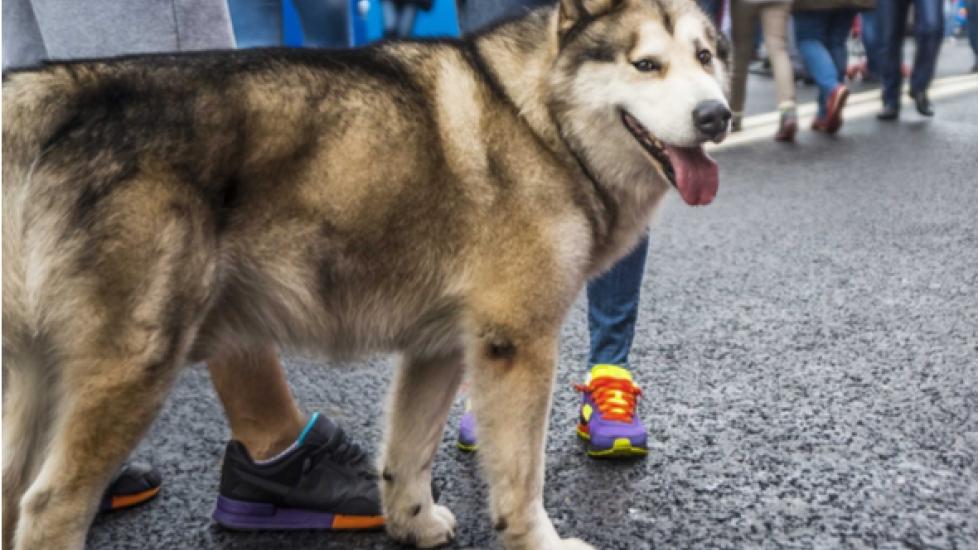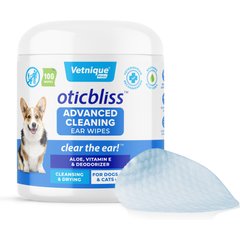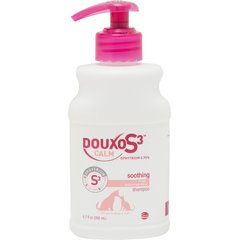Pet Safety Tips for Public Events
Image via maradon 333/Shutterstock.com
By Nancy Dunham
For many dog owners, public events like street and beach festivals definitely make the list of must-do dog activities.
But in the rush to share the festivities with your beloved canine, you want to make sure that pet safety doesn’t take a back seat to fun.
“My feeling about taking your dog to a street festival is the same as taking your dog to a dog park,” says Dr. Jeff Werber, DVM in Los Angeles. “The most important thing is that the dog is okay with people and with other dogs.” If he’s not, he’ll be happier staying at home.
Dog safety, health and enjoyment should be pet owners’ main consideration when deciding whether their dogs attend public events. And that truly depends on the individual animal.
If you think your dog would enjoy it, or if happenstance finds you at an event with your dog by your side, here are the steps you should take to ensure pet safety.
Buckle Your Dog Up
If you’re driving to the event, secure your dog, says Amy Burkert, author of the book “The Ultimate Pet Friendly Road Trip.” “It is terrifying to me how few people have their pets buckled up in their vehicles.”
Buckling a dog into a dog car seat minimizes driver distraction, ensures the dog remains safe and protects people, says Burkert, who lives with her husband and two dogs in an ever-moving RV.
Burkert, founder of GoPetFriendly.com, says, “Having them buckled up also ensures they don’t jump out of the car when you stop and get lost or leap into traffic and cause accidents.”
Vet Recommended Health Support
- Virbac C.E.T. Enzymatic Dog & Cat Poultry Flavor Toothpaste, 70 gram & Virbac C.E.T. Pet Toothbrush, Color Varies$18.78Chewy Price
- Vetnique Labs Oticbliss Advanced Cleaning, Soothing Aloe & Odor Control, Dirt & Wax Removal Dog & Cat Ear Wipes, 100 count$14.99Chewy Price
- Douxo S3 CALM Soothing Itchy, Hydrated Skin Dog & Cat Shampoo, 6.7-fl oz bottle$23.99Chewy Price
- Dermoscent BioBalm Skin Repairing Dog Balm, 1.67-oz jar$19.95Chewy Price
Feel the Heat
You may think that nice weather is ideal for a walk through a festival or outdoor event with your dog, but you should stop and feel the sand, pavement, etc., with your hand. If it is burning or uncomfortable, it’s too hot for your dog, says the Emmy Award-winning Dr. Jeff Werber, who hosted “Petcetera” on Animal Planet and “Lassie’s Pet Vet” on PBS.
Pavement and asphalt retain heat after the sun sets, so you should check the temperature no matter the time of the day and at night, he adds.
“I can’t tell you how many dogs I’ve seen on beaches with no umbrellas, no dog booties and no hydration,” says Dr. Werber. “That’s unfair to the dog and can make [him] ill.”
Dogs who are out in the summer need plenty of water and plenty of shade, advises Dr. Werber. “Take plenty of breaks and check their feet,” he adds. “If they are panting or agitated, it might be too hot for them. It’s time to go home.”
Control Your Dog
“Be sure your pets have well-fitting collars with up-to-date ID tags just in case your pet gets lost,” says Dr. Carol Osborne, DVM at Chagrin Falls Veterinary Center and Clinic in Ohio. “Today, in addition to permanently identifying your pet with a collar or microchip, newer services geared to help locate lost pets include Pet Amber Alert and pet GPS.”
Some dog experts recommend that owners only use a non-retractable dog leash, especially at large outdoor events. To help ensure dog safety, it is important to closely control your dog while around large crowds. A dog on a retractable leash can get tangled around objects or people, which may lead to injury, or at the very least, a potentially unpleasant situation.
You May Love a Parade, But Your Dog Doesn’t
“Even the most gregarious, socialized pet shouldn’t go to a parade,” says Russell Hartstein, certified pet behaviorist and CEO of FunPawCare in Los Angeles. “No dog loves to do those things. Some will behave if they are forced to go, but that doesn’t mean they thrive or enjoy it. People become intoxicated, step on the dog… It’s only a matter of time before a dog might growl or bite because they are stressed and overwhelmed.” Hartstein recommends against taking dogs to public events like festivals.
Dogs and other animals can also be fearful of loud noises and other boisterous forms of human entertainment, like fireworks. “Loud noises scare pets and most dogs and cats do NOT enjoy fireworks,” says Dr. Osborne. “Leaving pets home during fireworks is wise. Pet ears are far more sensitive to loud noises than ours.”
To keep your pet calm during loud noises at home, have your pet listen to classical music, which has been shown to reduce canine anxiety. Pet ThunderShirts are also an option to help comfort stressed dogs. In extreme situations, your veterinarian can recommend dog anxiety medication, supplements and behavioral modification techniques that will help your dog deal with loud noises.
Watch What Your Dog Eats
Most people like barbeques, but the combination of foods, beverages and grills can prove unsafe or deadly, says Dr. Osborne.
Beer, wine and alcohol can lead to life-threatening seizures and/or respiratory failure in dogs and cats, says Dr. Osborne, so take special care that they are well out of reach.
It’s also wise to keep dogs away from the grill. Obviously, fire is a hazard, but so are unlit matches and lighter fluid if they are ingested. According to the ASPCA, both might contain chlorates, which can potentially damage blood cells and result in respiratory issues and even kidney damage in severe cases.
The ASPCA also says, lighter fluid is irritating to skin and can cause gastrointestinal irritation and central nervous system depression in dogs. Inhaling lighter fluid can leave your pet vulnerable to pneumonia.
Many types of human food can make dogs ill, adds Dr. Osborne.
“Barbecues are tantalizing,” she says. “However, keeping your pet’s meals and snacks as close to normal as possible helps avoid upset stomachs, vomiting, diarrhea and emergency room issues like pancreatitis.”
Having fun with your dog might involve some outdoor dog activities in public venues, but make sure your pet’s safety and health come first.




